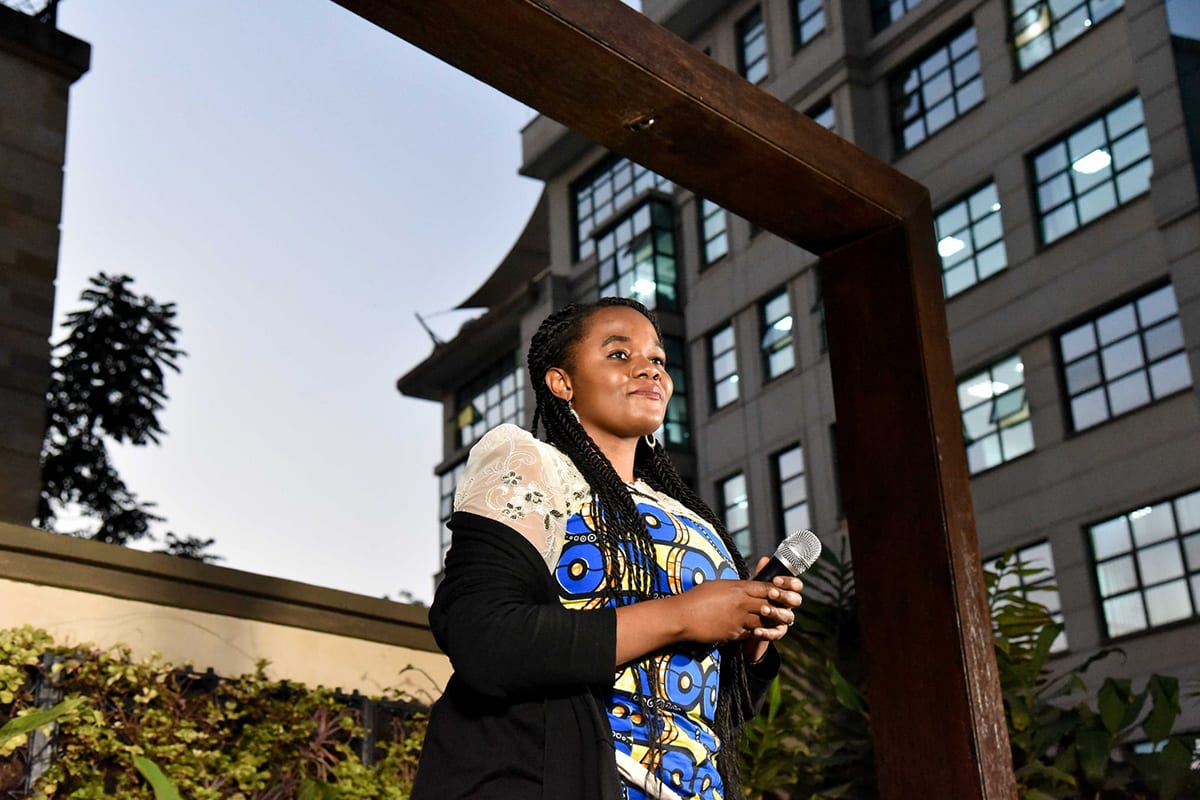Evening of Storytelling Features Leaders from the Developing World
By Michelle Geis Wallace, October 12, 2016

Chrystelle Wedi at the Aspen New Voices event in Nairobi.
“The best part about growing up in rural Zimbabwe was that I had no idea at all that we were poor. These were the days before Facebook, YouTube, MTV Cribs, Kardashians and selfies. Our dreams and imaginations seemed to be bounded by the big mountains that surrounded our village. We did not know what we did not have.”
Don’t you want to know more?
That’s the beginning of a talk by 2016 Aspen New Voices fellow Edward Mabaya, at a storytelling event in Nairobi hosted by Aspen. Ed is one of five fellows who told beautiful stories, weaving in the personal with the professional to bring global development issues to life. We learned about the importance of better seeds for smallholder farmers, the stigma surrounding certain illnesses in Africa and maternal health in the Democratic Republic of the Congo.
The storytelling support and training is part of a year-long program for development experts from the global South. In addition to the excellent story training by the folks at The Moth, the Fellowship offers media support and training under the guidance of experienced mentors and trainers.
If you know someone who should be a part of the program in 2017, you can nominate and learn more here. Nominations close in just a few days (October 15)!
Click the names below to explore specific talks.
- Ed Mabaya (Zimbabwe) tells the story of how he made it out of his poverty-stricken village in Zimbabwe, and why others didn’t.
- Sitawa Wafula (Kenya) was eager to study actuarial science because it meant she could ‘predict the future’. But she could not predict her own. Yet her own illness lead her to find a much more powerful skill.
- Thumbi Mwangi (Kenya) never understood the power that his father, a smallholder farmer in rural Kenya, possessed. That is, until he was in graduate school and realized that in some ways local farmers had knowledge way beyond that of the scientists he was working with.
- Chrystelle Wedi (DRC) describes the her harrowing efforts to provide prenatal care to women in the Congo.
- Anjali Sarker (Bangladesh): When Anjali’s sister was born, her uncle said, “A girl? What bad news to start the day with.” Anjali tells us how she the rest of her life proving him wrong.
